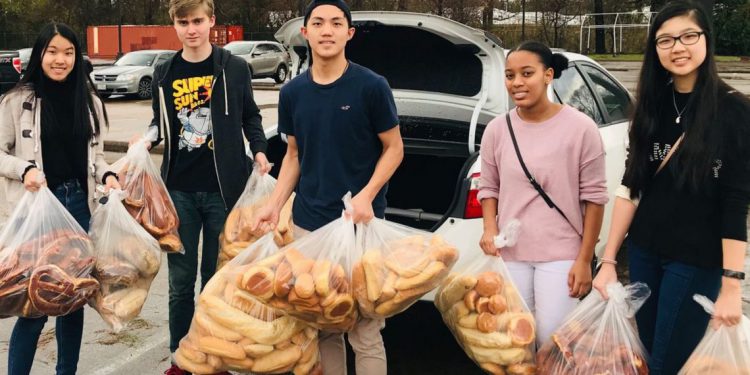The BBC reports that twins Shirley and Annie Zhu were 15 when in 2017 they began collecting unsold food from grocery stores and bakeries in Houston and distributing it to residents living in “food deserts” – areas which don’t have good access to fresh, affordable food. Saving uneaten food help the climate
Together with an initial team of 10 classmates at their high school, they set up Fresh Hub. With the help of a smartphone app and automated messaging service, they were able to alert residents when fresh food was available. Saving uneaten food help the climate
Around 2.5 billion tonnes of food is lost or wasted each year, approximately 40% of all food produced, according to a WWF report. It’s a disaster on many counts. Not only could this food help tackle the food insecurity affecting hundreds of millions of people worldwide, but it also has a climate impact: food waste is estimated to generate up to 10% of greenhouse gas emissions. Saving uneaten food help the climate
Despite being a wealthy country, where food is abundant, more than 37 million people in the US – over 10% of the population – struggle to access enough nutritious food to be able to have a healthy and active life. Globally, food insecurity is an increasing problem.
Up to 811 million people (around 10% of the world’s population) faced hunger in 2020, according to the UN, an increase of more than 100 million people from 2019.
In Houston, areas of food insecurity proliferate, with more than 500,000 residents living in food deserts. An estimated one-in-five people in the city are now experiencing food insecurity.
At the same time, up to 40% of food in the US goes uneaten. “That amount of food would be enough to feed 164 million people in the US their full diet every day of the year,” says Maddie Keating, a member of the food waste team at Natural Resources Defense Council, an environmental advocacy non-profit.
To produce the food in the first place requires a long chain of processes which all emit carbon dioxide and other greenhouse gases contributing to climate change. Household food waste, which makes up 60% of all food waste, contains the embedded emissions “from the farm, transporting it… packaging, processing, retail, transport to your home, refrigeration, cooking, only to then be transferred to landfill”, says Clementine O’Connor, sustainable food systems programme officer at the United Nations Environment Programme (UNEP). Once the food ends up in landfill it rots, emitting methane, a powerful greenhouse gas. Saving uneaten food help the climate
“[It] is another reason why food waste is a pressing issue,” says Shirley, and reducing the environmental impact of uneaten food is also part of Fresh Hub’s mission. Last year the sisters won the President’s Environmental Youth Award, given out by the US Environmental Protection Agency (EPA), for their work with Fresh Hub.























